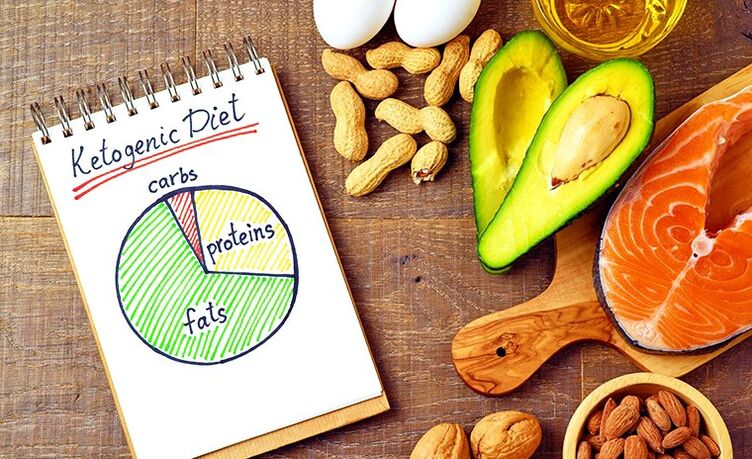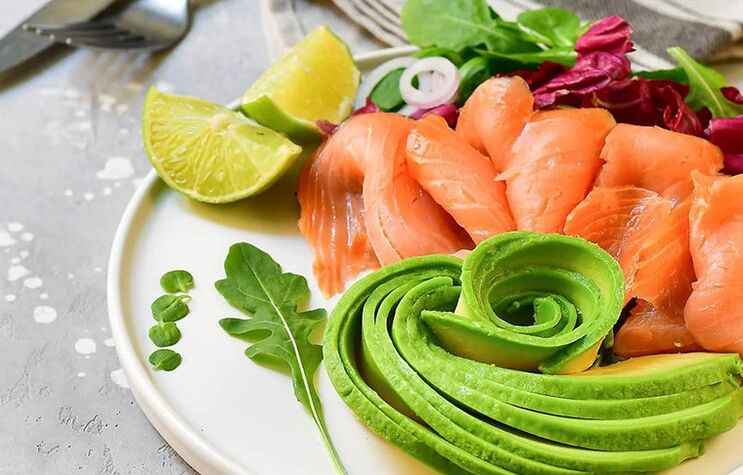
If, twenty or thirty years ago, someone placed all products in two baskets, classifying them according to the principle of greatest and least usefulness, today you would have to do a complete overhaul of them. The strangest story happened during this time with fat - humanity's recent main enemy is not only fully rehabilitated, but has nearly declared its savior. That's how nutritionist Chris More understands.
A patient recently admitted to me that she and her husband eat a pound of bacon a week—three slices for breakfast and two more with salad for lunch. I've been working as a nutritionist for over twenty years and it seemed like nothing would surprise me, but even so I couldn't resist asking: why? The patient said her husband was watching a TV show about ketone diet and they decided to give it a try. Six months of eating bacon - and now the husband has lost twenty pounds and, according to his wife, is nearly bursting with energy overwhelming him.
More and more, I hear from people about the miracles the ketone diet does for them. They say it burns body fat, energizes and defeats disease, and from now on, it's not only possible, but necessary to eat as much bacon as you like. But all their enthusiasm needs at least one serious test - is a ketone diet that doesn't restrict animal fat intake really that good?
The ketogenic diet is a low-carbohydrate, high-fat, and moderate-protein diet. It was originally used to treat epilepsy in children by increasing the level of ketone bodies in the blood.
What is ketosis?
Let's start with the name of the diet: where did this "ceto" come from? When the body is desperately lacking in carbohydrates - for example, due to diabetes or prolonged hunger - it has to break down its own fat more actively than usual for energy. Ketosis develops: metabolism is disrupted and more ketone bodies than necessary accumulate in the tissues. Ketone bodies are products of fat metabolism. They are produced by the liver when insulin levels drop in the blood.
"The liver produces ketone bodies all the time, but their levels depend on the carbohydrates and proteins you eat - the body needs both, " explains Jeff Volek, a professor at Ohio University.
The breakdown of fat in a healthy person's body and the formation of ketone bodies is a normal process called ketogenesis. Unlike ketosis, ketogenesis does not lead to dramatic weight loss. Ketosis is a condition that, in addition to diabetes and prolonged fasting, can be caused by a ketone diet, as it almost excludes carbohydrate-rich foods from the diet. A person who has developed ketosis loses weight dramatically, as well as due to some other pathologies.
The ketogenic diet forces the body to use fat as its main source of energy. Typically, this role is played by carbohydrates, which, when taken with food, are turned into glucose, which is extremely important for nutrition and brain function. However, if the diet is low in carbohydrates, the liver converts the fat into fatty acids and ketone bodies. Ketone bodies enter the brain and are used as an energy source instead of glucose. An increase in the level of ketone bodies in the blood (ketosis) leads to a decrease in the frequency of epileptic seizures.
In the ketone diet, the main part of the daily diet - 60 to 80% - is fat, protein - about 15%, and only the remaining 10% is carbohydrates (that's about half a small loaf). At first glance, it looks like the Atkins diet, but the ketone diet involves more severe carbohydrate restriction, according to Spencer Nadolsky, author of The Fat Loss Prescription. Several theorists generally claim that the fewer carbohydrates we eat, the more fat our bodies burn, and for that reason, metabolism improves, immunity increases - and in general, various miracles begin to happen in our bodies.
However, in ordinary life, we get about half the calories and not a tenth of them from carbohydrates. So, in essence, the question is, can your body stay in ketosis long enough to achieve the promised nirvana without serious health consequences? Will you literally start freaking out with fat?
Is the Ketone Diet Right for You?
It may sound strange, but the best diet for you is the one you are used to following. For Volek, who has been practicing ceto for twenty years, she is good, but is she right for you? Unfortunately, there is no research on what happens in the body of a person who has been on a ketone diet for a long time. During the AZ weight loss study, scientists studied the Atkins, Zone, LEARN and a few other diets, but in the study, women consumed 25 to 35% of the carbohydrates - this is nowhere near the 10% that it is advisable to limit yourself to the keto diet.
The only thing that is known for sure: With the ketone diet you will actually lose weight. In Italy, in 2015, they studied the performance of people sitting on it and, on average, over three months, they lost about 10 to 12 kilos. A year earlier, in Spain, it was discovered that in a year this way you can lose about 20 kilos. It's true that, over the next year, subjects often returned to their pre-experiment weight as soon as they got off the strict diet.
What will you eat if you decide to try it? First and second, that bacon. Of the other products, there aren't many that are right for you. Starchy vegetables - potatoes, squash, corn - are strictly prohibited, as are most fruits. Milk, beans, rice and noodles will also have to be forgotten.
The ketone diet is difficult to follow and can be dangerous for some. "Extreme diets, in particular the ketone diet, are strictly contraindicated in people with neurodegenerative diseases such as epilepsy, " said Dr. Alan Aragon.
The ketogenic diet is considered great in society for weight loss. However, according to scientific evidence, the effect of weight loss soon after switching to a ketogenic diet is caused by a decrease in the amount of water in the body, and the amount of body fat is influenced only by energy balance. For weight loss, the energy provided with food must be less than that spent on physical activity. One of the benefits of the ketogenic diet, like other low-carb diets, is that the ketosis that occurs with low-carb diets contributes to weight loss in obesity. The difference in calorie intake can reach a thousand kilocalories per day compared to low-fat diets. The effect of ketogenic diets is highly dependent on the protein content of the diet.
Can I take medications that cause an increase in ketone bodies? In no case. Don't listen to these "advisors" who assure you that, even without any diet, you can induce ketosis with the help of special medications.
So is the ketone diet right for you or not? If you are an extreme athlete who is ready to experiment with your body, if you like to take risks and fast results are important to you, then give it a try! If you just want to lose a few pounds, and in the past you've encountered the "yo-yo effect" (when, after a strict diet, a person collapses and gains more weight than they've been able to lose), then perhaps you should take no chances. However, if you approach the ketone diet wisely, there are three lessons you can learn from it that will certainly come in handy.
What happened to my bacon patients? Her nutrition experiments continued right up to the moment her son was born. Of course, they immediately forgot about the diet (there's no time to think about it, as the young mother explained). So remember: sooner or later you'll get tired of regularly digging into bacon and return to normal, familiar food.
Revenues

Salmon and asparagus salad
Ingredients:
- 150 g of salmon fillet;
- 80 g of green asparagus;
- 1/2 head of iceberg lettuce;
- 2 eggs;
- 4 fillets of anchovies;
- 5 cherry tomatoes;
- 5 large capers (or 6–8 small capers) - take capers with salt, not brine, they should be washed before use;
- 1/2 medium sized red onion;
- 6-8 Art. oil;
- 1 teaspoon dijon mustard;
- juice of half a lemon.
How to cook:
The ketogenic diet is used by athletes involved in sports that require endurance, such as ultramarathon, triathlon, cycling, etc. The bodies of athletes who adhere to this diet use fat more efficiently as an energy source and thus help to conserve glycogen stores during prolonged exertion.
Bacon and lettuce salad
Ingredients:
- 2 heads of lettuce the size of a palm
- 100g bacon;
- 8 sprigs of mint;
- 1 egg yolk;
- 6 tbsp. me. oil and a little more to fry;
- 1 teaspoon granular mustard;
- 1 tablespoon of soup. me. Cherry vinegar.
How to cook:














































































